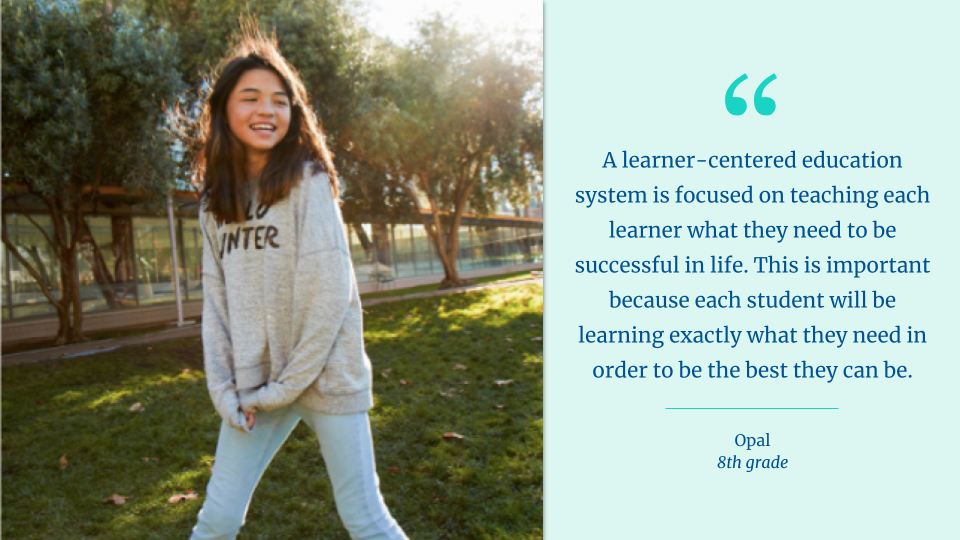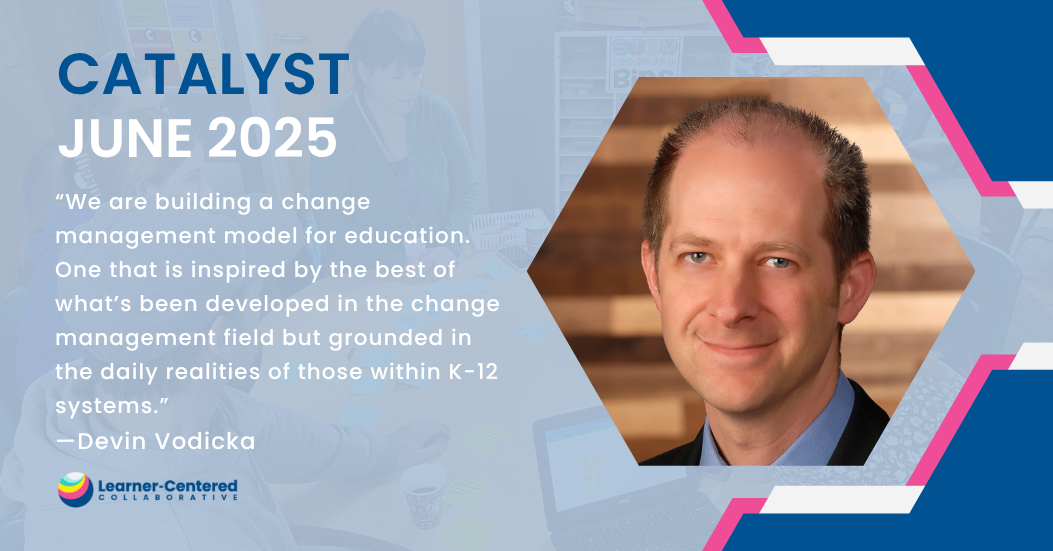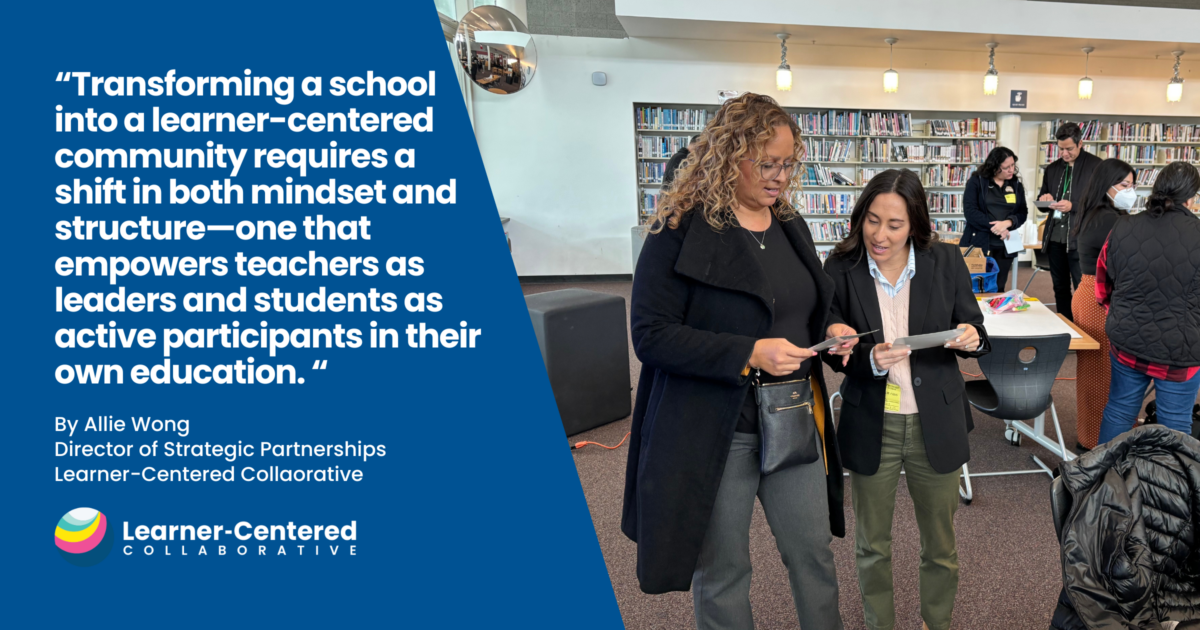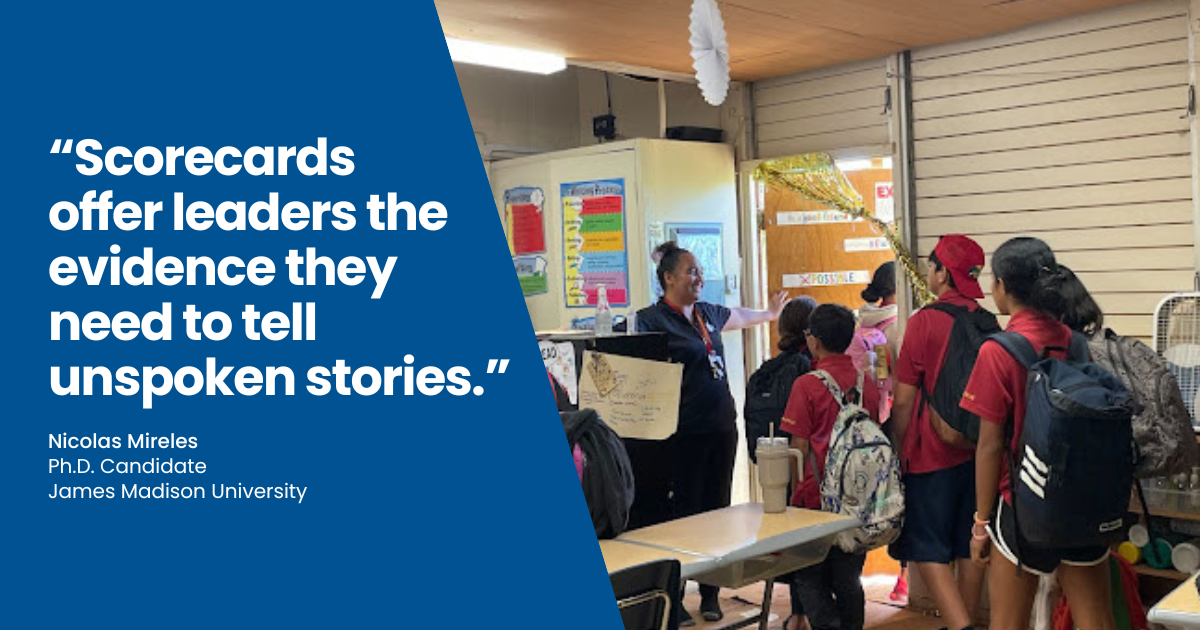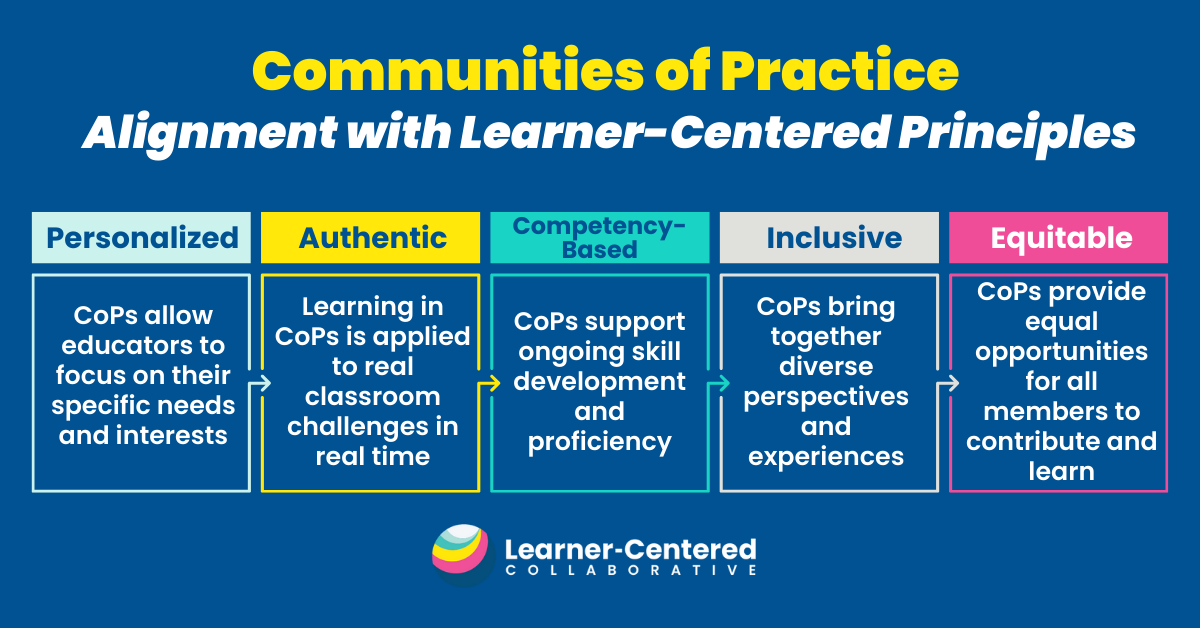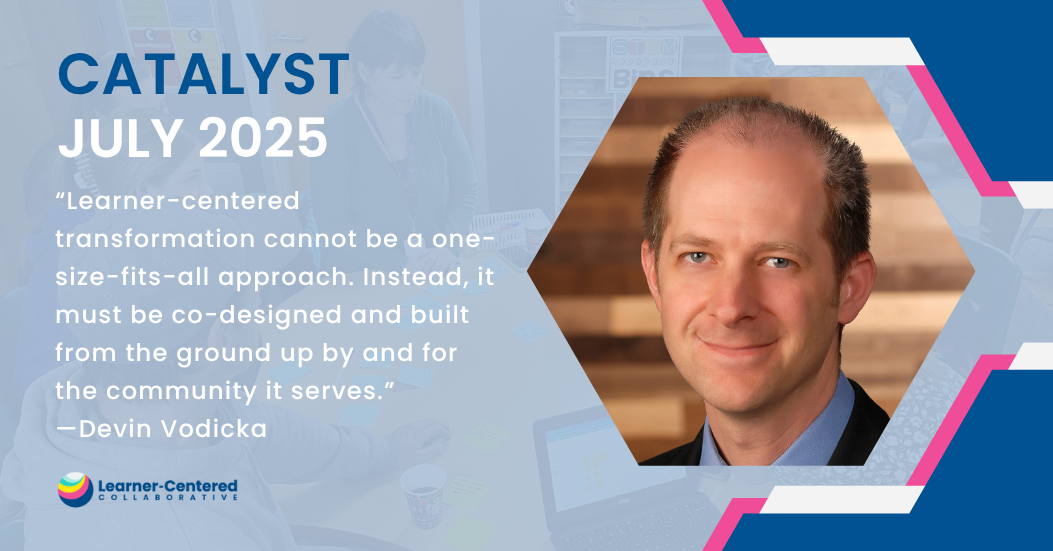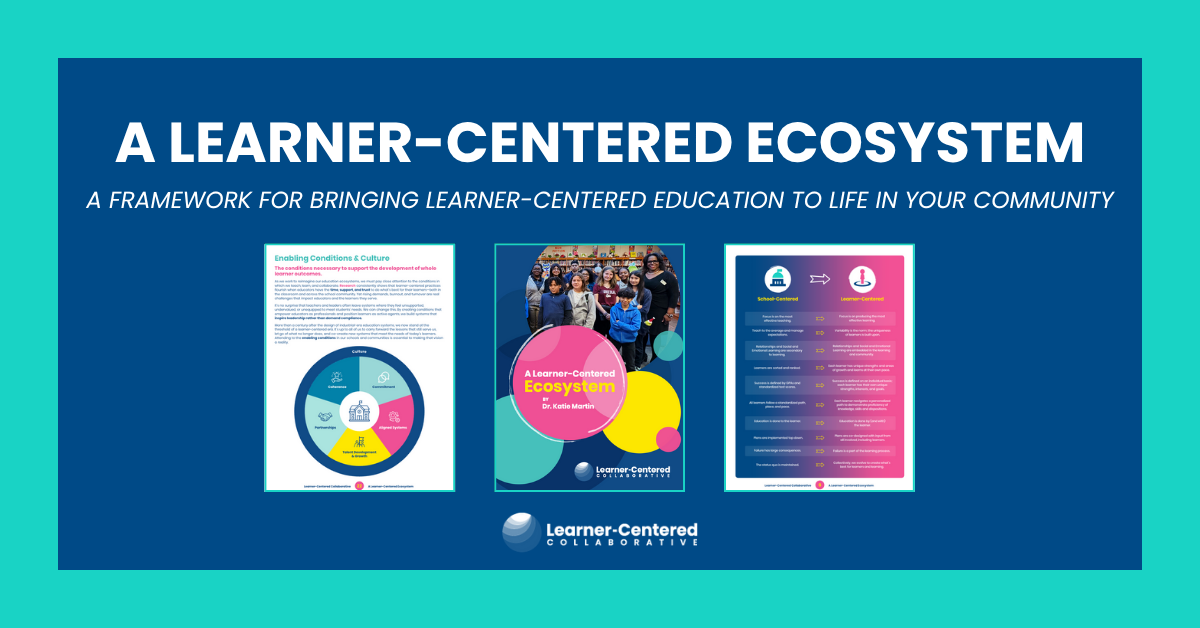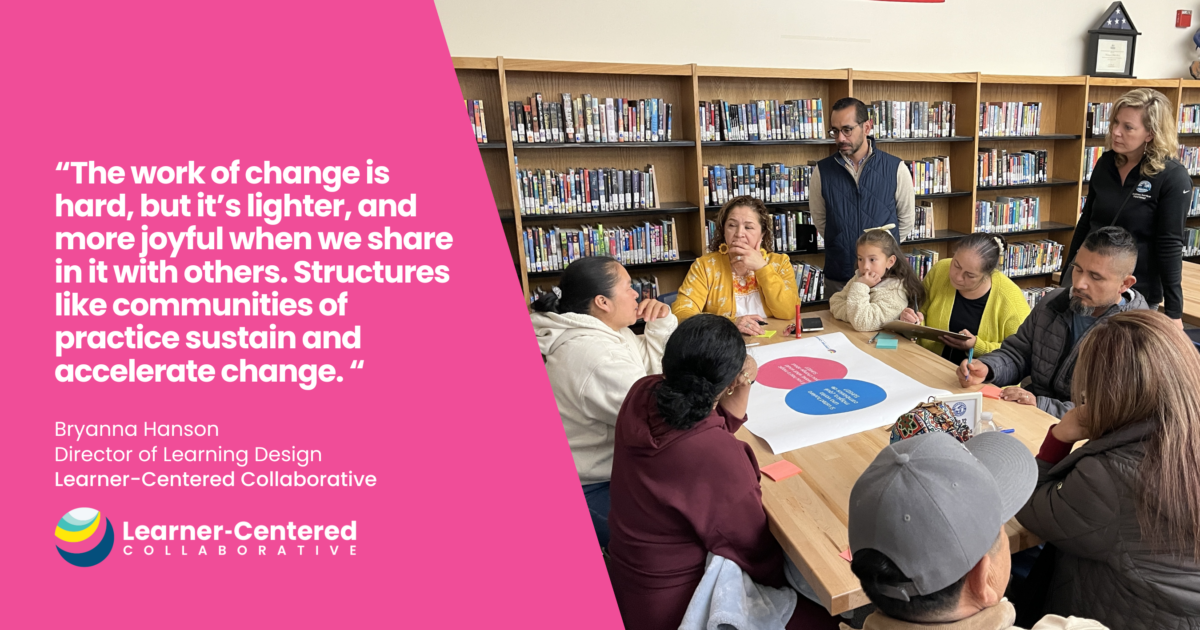Voices from the Learner-Centered Ecosystem
Listening to diverse voices from the field of educators, learners, and the entire learning community is at the heart of being learner-centered. As we’ve been connecting with educators and learners in our ecosystem, we’ve been compiling nuggets of wisdom and inspiration. Their insights apply whether you are leading learner-centered change, looking for inspiration to get started, wanting to tap into diverse perspectives, or seeking connection with like-minded folks.
Check out what voices in education nationwide are saying in support of more widespread models of learner-centered education and what they’d do if they had a magic wand.
What does Learner-Centered mean to you?
-
It means putting the student first and developing metrics and a profile on who the student is and who they should be, and garnering the resources and aligning them to those purposes. – Brian White, Superintendent, Butler Area School District
-
To me learner-centered means I have a place where I can focus and find inspiration. In a learner-centered place, everyone is eager to learn and it’s easy for students to learn. There are many different ways everyone learns. Learner-centered is important because everyone is allowed to learn and you can easily find what you are best at. – Sophia, 4th grader, The WIDE School
-
Really, truly asking ourselves: is this learner-centered? I think a lot of the time, we design systems that we think are learner-centered, but the whole time, only adults are involved in the process. So really thinking about what is best for students, what will prepare them for the future, but also, what’s going to be fun? Learning needs to be fun again. It is keeping learners at the center throughout the entire process. – Jessica Slusser, Senior Director of Impact, Getting Smart
-
Ultimately, I want students to self-direct how, where, and why they learn.
– Mike Nagler, Superintendent, Minneola Public Schools
-
When we really think about the whole child, we really consider them as human beings first. We’ve always understood the importance of social & emotional learning, and now that it’s at the forefront we’re trying to figure out ways to meaningfully attend to those. We want to treat our students as humans first, and then we can work on the academics. – Jeremy Walden, Principal, Mission Vista High School
Uncover 3 whole-learner outcomes that develop learners who know who they are, thrive in community, and actively engage in the world as their best selves in Let’s Get Explicit About Whole-Learner Outcomes.
-
Getting closer to the goal of getting every learner what they need when they need it, and not treating all the kids the same based on their age.– Brian Greenberg, CEO, Silicon Schools Fund
-
To me, when I think about learner-centered, I think about young people having voice, agency, and influence. If students had voice to describe what they care about, who they are, what matters to them, the agency to act on it, and the influence to do something with it, we’d make a greater impact for future learners. – Jeanine Collins, Chief Community Innovation Officer, ed.Xtraordinary
-
A learner-centered education system is focused on teaching each learner what they need to be successful in life. This is important because each student will be learning exactly what they need in order to be the best they can be. – Opal, 8th grader, The WIDE School
Why is Learner-Centered education so important right now?
- I think the world has changed. Content and knowing content won’t guarantee success for you anymore. Being able to self direct, be a team player, and work with other people, that is what will make you successful going forward into the future. – Mike Nagler, Superintendent, Mineola Public Schools
-
I think we’re at a point where we are learning that every human is different; we have neurodiversity. When we understand that every human is different, it allows us to create pathways that are unique to each learner. The reach is maybe similar, meaning each student might have equal expectations and outcomes, but every student has a different pathway to get there. So when we make things learner-centered, we’re truly capitalizing on the neurodiversity that we know exists in our human species. – Nate McClennon, Vice President of Strategy and Innovation, Getting Smart
-
We’re at a crossroads in democracy, and if students don’t have knowledge or power, they’re not going to understand the importance of their own voice, and it will prevent them from finding their own voice. – Brian White, Superintendent, Butler Area School District
- Learner-centered is important because it makes the learning more meaningful. It is also important because it makes students feel like people care for them and not just their grades. – Taylor, 8th grader, The WIDE School
-
I have my own kids and I know how different they are, and as a classroom teacher I remember how hard it was to try to meet the needs of everyone in my class. So I defaulted to “teach to the middle” and it didn’t work. I did the best I could and I didn’t know any better. And now we know better. Now it’s time to teach the teachers, teach the kids, allow parents and students to find better solutions. – Brian Greenberg, CEO, Silicon Schools Fund
If you had a magic wand, what would you change in education today?
- Traditional grades. Let’s evaluate kids on proximity to standard and also take into account the importance of reflecting on the learning process itself and the value that that holds. – Jeremy Walden, Principal, Mission Vista High School
-
I would change the constraints of school as tied to a school building. I think the school building is a mindset that people have about what works. I think if we could help others be open-minded, we could reimagine the possibilities and redefine what school means. We could reimagine the point of convening as a purpose that is worthwhile, and not just something that we do to keep kids busy. – Jeanine Collins, Chief Community Innovation Officer, ed.Xtraordinary
-
The biggest impediment to public education is the assessment system. When you declare a proficiency line in an examination, you’ve already declared that 50% of your kids fail. We shouldn’t approach school from a deficit model. – Mike Nagler, Superintendent, Minneola Public Schools
Dive into assessment practices that promote learning in Uncovering the True Purpose of Assessment.
A tenet of our work at Learner-Centered Collaborative is that a shift to learner-centered is a community-wide effort that is best done when we work together and share and apply lessons learned and best practices from the larger learner-centered ecosystem. To learn more about resources and professional learning opportunities to support your work toward a more learner-centered paradigm, schedule a time to connect with our team.
